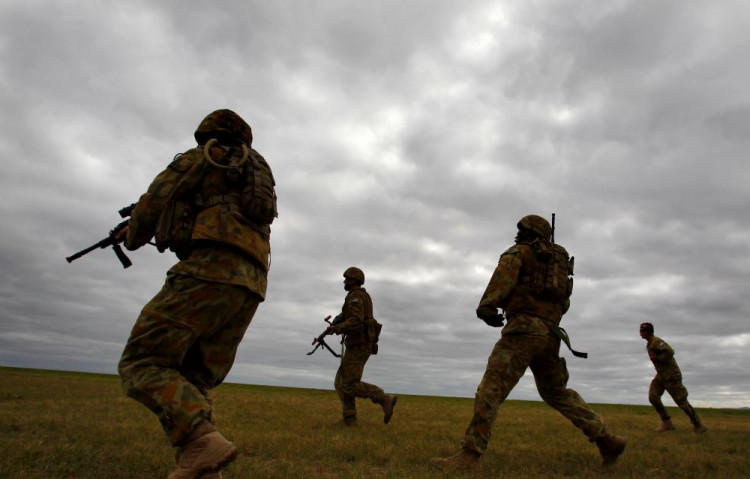Australia will discharge at least 10 members of its Special Air Service Regiment implicated in war crimes in Afghanistan, the Australian Broadcasting Corporation said in an exclusive report Thursday.
The soldiers are suspected to be witnesses to alleged murders carried out by other special forces soldiers
The dismissals come after an inquiry found "credible information" Australian soldiers committed war crimes while in Afghanistan, the ABC said.
ABC sources said other special forces members may eventually be discharged or face a range of disciplinary sanctions, including formal warnings.
The personnel are suspected to have been "accessories" or "witnesses" to alleged murders carried out by other special forces soldiers but are not among the 19 personnel a special inquiry last week recommended be referred to Federal Police.
"As the chief of the defense force said last week, findings by the Afghanistan Inquiry of alleged negligence by individuals in the performance of their duties have been accepted...and allegations will be managed through the administrative and disciplinary processes."
Australia's defense chief Angus Campbell says the unlawful killings stemmed from a "warrior" culture within special forces. The recent commission of inquiry found "credible information" Australian soldiers murdered civilians and prisoners in Afghanistan.
It said 25 current or former personnel were involved in the serious crimes - either carrying out the offences of at least being "accessories" to the incidents.
The findings of last week's report sent shockwaves through the defense community and exposed a "warrior culture" among Australia's most elite soldiers that involved a "misplaced focus on prestige, status and power," senior fellow at the Australian National University John Blaxland told the ABC.
The inquiry said it found that the practice known as "blooding," where junior soldiers were often required by their patrol commanders to shoot prisoners to get their first kill, continued in the army.
"Typically, the patrol commander would take a person under control and the junior member...would then be directed to kill the person under control," Blaxland said.






